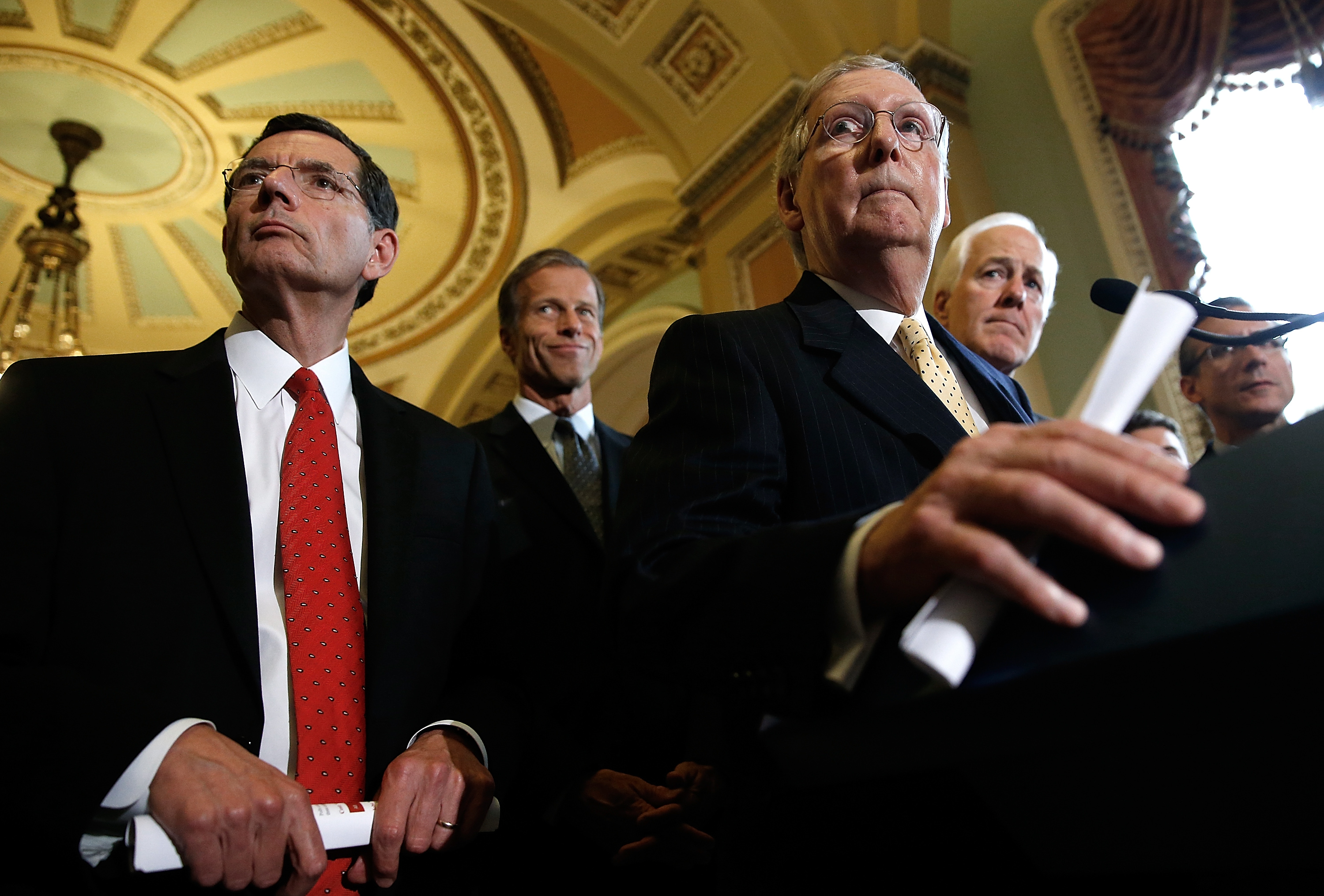A bill aimed at protecting veterans exposed to toxic materials during their service was shut down yesterday in the Senate, in a 55 to 42 vote that failed to meet the 60-vote threshold necessary to advance the legislation.
Of the 42 senators who voted against the Pact ACT, 41 were Republicans. These are all the Republican Senators who voted against the bill:
- John A. Barrasso, WY
- Marsha Blackburn, TN
- Roy Blunt, MO
- Mike Braun, IN
- Richard Burr, NC
- Bill Cassidy, LA
- John Cornyn, TX
- Tom Cotton, AR
- Kevin Cramer, ND
- Mike Crapo, ID
- Ted Cruz, TX,
- Steve Daines, MT
- Joni Ernst, IA
- Deb Fischer, NE
- Bill Hagerty, TN
- Josh Hawley, MO
- Cindy Hyde-Smith, MS
- Jim Inhofe, OK
- Ron Johnson, WI
- John Neely Kennedy, LA
- James Lankford, OK
- Mike Lee, UT
- Cynthia Lummis, WY
- Roger Marshall, KS
- Mitch McConnell, KY
- Rand Paul, KY
- Rob Portman, OH
- Jim Risch, ID
- Mitt Romney, UT
- Mike Rounds, SD
- Ben Sasse, NE
- Rick Scott, FL
- Tim Scott, SC
- Richard Shelby, AL
- Dan Sullivan, AK
- John Thune, SD
- Thom Tillis, NC
- Patrick Toomey, PA
- Tommy Tuberville, AL
- Roger Wicker, MS
- Todd Young, IN
Only one Democrat, Senate Majority Leader Chuck Schumer, voted against the bill. Two Democrats and one Republican abstained, while 47 Democrats, 8 Republicans and 2 Independent voted to pass the bill.
The vote was a surprise, as the bill was originally passed by the Senate 84-14 on June 16 and received overwhelming Republican support. The legislation was ready to be passed to the House, but the bill was delayed as one section of it was debated by Veterans’ Affairs Committee leaders.
On July 13, the House overwhelmingly approved the bipartisan expanding health care and benefits for toxin-exposed veterans and sent the package back to the Senate with only a minor change.
But the vote was radically different from only a few weeks ago.
While not all Republican senators who voted against the bill talked publicly of why they did so, Republican Sen. Toomey said on the Senate floor that he voted against the bill because it would create $400 billion in unrelated spending.
“My concern about this bill has nothing to do with the purpose of the bill,” Toomey said. “This budgetary gimmick is so unrelated to the actual veterans issue that has to do with burn pits, that it’s not even in the House version of this bill.”
Schumer, who had voted ‘yes’ the previous time and strongly supports the bill, changed his vote to ‘no’ as a simple procedural move allowing him to reconsider the cloture vote at any time.
“This is a sad day in the U.S. Senate,” Chairman of the Senate’s Veterans’ Affairs (VA) Committee and Montana’s Democratic Senator Jon Tester said after the vote.
“The American people are sick and tired of the games that go on in this body.”
In an eleventh-hour act of cowardice, Republicans chose today to rob generations of toxic-exposed veterans across this country of the health care and benefits they’ve earned and so desperately need.
Make no mistake—the American people are sick and tired of these games. pic.twitter.com/w2ZUcGzGpT
— Senator Jon Tester (@SenatorTester) July 27, 2022
The bill, which was brought forward by Tester and Republican Senator Jerry Moran of Kansas, called for the expansion of healthcare and disability benefits for veterans who had been exposed to toxic materials during their military service.
The new legislation would expand care to 3.5 million veterans who were exposed to burn pits since 9/11 in places like Iraq and Afghanistan, adding 23 toxic and burn pit exposure-related illnesses to the VA database.
The bill would also expand support for Vietnam-era veterans who were exposed to Agent Orange in places like American Samoa, Cambodia, Guam, Johnston Atoll, Laos and Thailand.
The entire package was expected to cost some $278.5 billion over the next decade, according to estimates by the nonpartisan Congressional Budget Office.
“Advocates died fighting for this bill. Instead of spending their last days with their families, they fought to help their fellow veterans,” wrote veteran Ted Corcoran on Twitter.
“Now, more veterans will die waiting for help that was just within our reach but may never come. Don’t ever thank me for my service again.”
The bill could be called for another vote by its supporters.
Win McNamee/Getty Images

















Discussion about this post